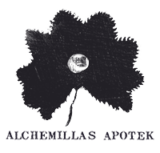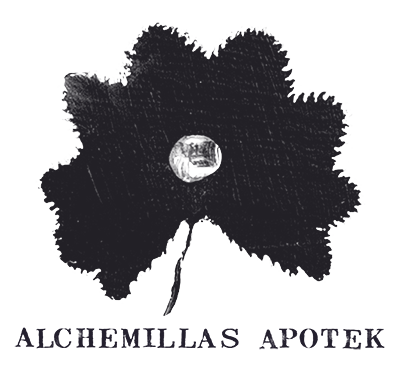Description
Spagyric tincture of Melissa Officinalis.
Take 7-14 drops directly on the tongue or in a little warm water or tea when in need.
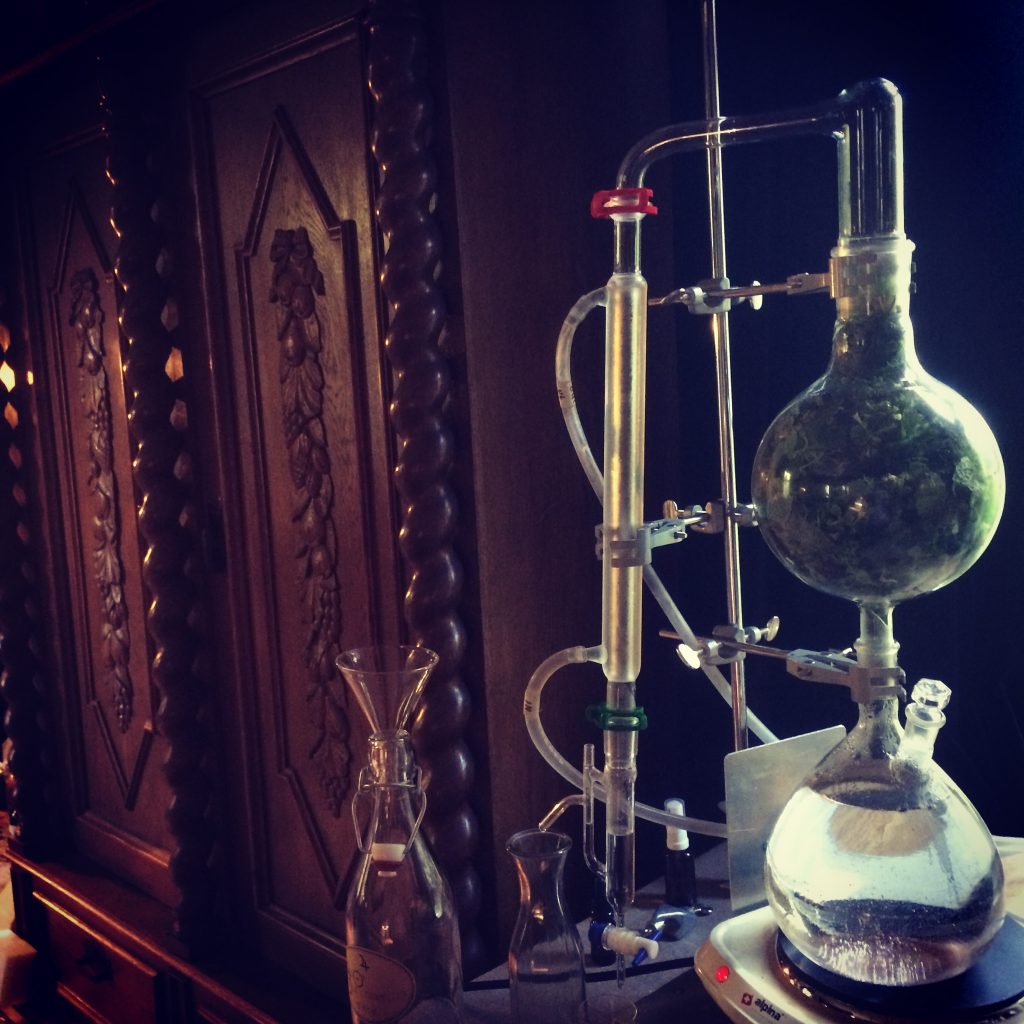
150 kr
“See the world as if for the first time; see it through the eyes of a child, and you will suddenly find that you are free” – Deepak Chopra
![]()
Calming for the physical as well as the emotional heart. Good for indigestion, gas and bloating.
![]()
Lemon balm is a plant with both mood and cognitive-enhancement properties. It is calming, soothing anxiety and is spiritually uplifting. It brings joy and wonder to the user.
![]()
Lemon balm was the favorite herb of Paracelsus, the father of spagyria, who believed it would 'revivify a man' and called it “the elixir of life”. 12th century herbalist Saint Hildegarde von Bingen said “Lemon balm contains within it the virtues of a dozen other plants.”
Lemon balm is ruled by jupiter, the largest planet of our solar system, mainly composed of gas. Jupiter is called Guru in India, and the archetype of jupiter has to do with expansion, joy and the inner teacher.
Lemon balm instills a childlike wonder. It is possible and necessary to reinstall this quality if it is lost. This is the teaching of Lemon balm.
Take 7-14 drops directly on the tongue or in a little warm water or tea when in need.

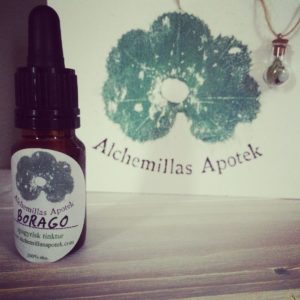
[:en]
![]()
Borage is anti-inflammatory, demulcent, nutritive and cooling. It is giving tone to relaxed tissues like varicose veins. It is also used to soothe the body's mucous membranes. Borage can help ease arthritis and rheumatism.
![]()
Borage can be helpful to uplift and strengthen the spirits, especially in times of grief. It is also a great PMS-relief.
![]()
The blue starlike flowers reach an apex, coming to a singular focused point. Borage is excellent for individuals who are scattered in their communication, lack focus and clarity, and are unable to “get to the point”. It can also be useful for people who tend to “beat around the bush” and are not direct with their communication.
Most confusion that occurs in relationships is due to unclear communication and Borage is an excellent remedy to turn to in order to bring more direct, focused and clear communication that gets to the point.[:sv]
![]()
Gurkört verkar anti-inflammatoriskt, fuktgivande, närande och kylande. Den ger stadga åt förslappade vener och vävnader så som åderbråck. Gurkörten är bra för att lindra inflammation, mjuka upp och återfukta slemhinnor och kan hjälpa vid artros och reumatism.
![]()
Gurkört kan vara behjälplig för att lyfta anden och humöret och kan vara ett stöd vid sorg.
![]()
De blå stjärnlika blommorna bildar med sina fem kronblad en gemensam högsta punkt, ett slags fokus. Gurkört är bra för splittrade individer som kommunicerar på ett splittrat vis. För de som saknar fokus och klarhet eller har svårt att komma till saken. Gurkört kan också vara bra för de som tassar kring den metaforiska heta gröten och liksom aldrig gör slag i saken, eller har svårt att vara tydliga och raka i sin kommunikation.
Förvirring och missförstånd uppstår oftast i relationer på grund av oklar kommunikation. Gurkört ger oss stöd i att kommunicera fokuserat, klart, direkt och rakt på sak.
[:]
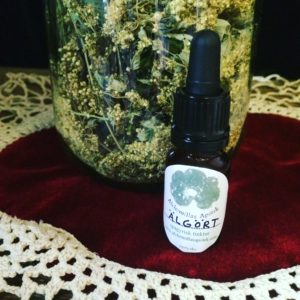
[:en]The aspirin of the druid.
![]()
Meadowsweet is good for ulcers, heart-burn and acid reflux. Meadowsweet is astringent and also anti-acid, as well as offering anti-inflammatory and pain relieving properties.
Meadowsweet contains salicylic acid which makes it a pain reliever, especially suited to stagnant pain (in a fixed location, possibly with a pounding sensation) and for symptoms of heat. Relieves muscular inflammation, headache, joint pain, rheumatic pain, fever, menstrual pain and gout.
![]()
Meadowsweet is a true normalizer of a badly functioning stomach. It regulates acidity and rectifies alkalinity. It calms internal excitation.
I have noticed that it makes you feel happy, so I think it is also calming heated internal states of anger and frustration.
![]()
Meadowsweet was also a sacred herb among the druids and it was a favorite strewing herb in the Middle Ages. They sprinkled it on the floors like aromatherapy.
The smell is almondy and very cheerful. Meadowsweet was the source aspirin came from. It possesses similar properties, but is non-toxic, cooling and soothes the stomach, rather than inflaming and irritating it like aspirin does.
[:sv]Druidernas aspirin.
![]()
Älggräs är bra för magsår, halsbränna, magkatarr och sura uppstötningar. Älggräs är sammandragande och basiskt, och har anti-inflammatoriska och smärtstillande egenskaper. Älggräs innehåller salicylsyra, vilket är smärtstillande, särskilt lämpad för stillastående smärta (på en bestämd plats, eventuellt med en bultande känsla) och symtom som indikerar hetta i systemet. Lindrar muskelinflammation, huvudvärk, ledvärk, reumatisk värk, feber, mensvärk och gikt.
![]()
Älggräs balanserar en dåligt fungerande mage. Den reglerar syrabalansen och är som sagt basisk. Den kyler ner inre hetta. Jag har märkt att man blir
glad av den, därför tror jag att den även lindrar inre hetta i form av ilska.
![]()
Älggräs var också en helig ört bland druider och det var en favoritört att strö på de medeltida golven. Om det var fest ströddes älggräs i festlokalerna som aromaterapi. Lukten är mandelaktig och glädjande. Aspirin är designad efter Älggräsets egenskaper, men man har endast tagit ut en del, salicylsyran. Därför har aspirin bieffekten * att den inflammerar och irriterar magen medan älggräs istället verkar kylande och lugnande för magen därför att salicylsyran är endast en av dess egenskaper som bildar en synergi.[:]
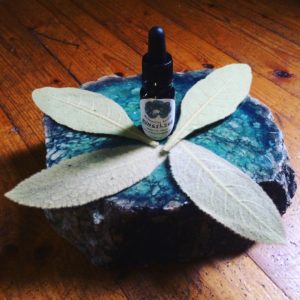
[:en]Transforming what has turned hard soft again.
![]()
Mullein is an excellent remedy for the respiratory tract: lungs, throat and bronchi. The leaves are incredibly soft and it´s medicine is all about softening those things that have turned hard. This action exists on the physical level, as well as mental, emotional and spiritual. Physically, it moistens, softens, and lubricates irritated, dry and inflamed mucosal tissues, primarily in the lungs, and but also in the fluid spaces between the vertebrae (The Mullein-stalk looks like a spine) where the mucous is supposed to be fluid.
In the presence of excess heat there is a tendency to harden. Mullein softens this hardening and facilitates expectoration, easing inflammation and restoring the tone and secretions of the tissues.
![]()
The softening of what has turned hard aspect also works on the mental level. Mullein is good for people who are hard on themselves and overly critical in general.
Mullein stalks dipped in wax were used as ceremonial torches by druids. The torch-quality is a signature that Mullein is providing focus, enlightenment and grounding to those who feel they have lost their way or can’t see their path. They often feel in the dark and disjointed, and the confusion may cause tension and a sense of abandonment. Mullein is for those who hide their light under cover and those who need a strong backbone.
![]()
Herbalist Matthew Wood tells: “Mullein is for people who think too much and congest the mind, or suffer mental tightness following difficult projects. It gives such a person a feeling like the mind is opened up to breezes on a fresh spring day”[:sv]Transformation av det som förhärdats så det blir mjukt igen.
![]()
Kungsljus kan användas vid besvär i luftvägarna; lungorna, halsen och bronkerna. Bladen är otroligt mjuka och lite ludna. Kungsljusets lära handlar om att förvandla det som blivit hårt så att det blir mjukt. Denna verkan sker på de fysiska, mentala och själsliga planen samtidigt. Fysiskt så mjukgör och återfuktar kungsljuset irriterade, uttorkade och inflammerade slemhinnor, särskillt i lungorna, men även i de fuktiga mellanrummen mellan ryggradens kotor där det är meningen att det ska vara ett flöde. Kungsljusstjälkarna liknar ju dessutom en ryggrad. Naturen kommunicerar med oss via signaturläran, signs of nature, naturens teckenspråk.
![]()
Kungsljusets stöd i att transformera det hårda till att bli mjukt fungerar även på mental nivå. Kungsljus är bra för personer som är hårda mot sig själva och kritiska i allmänhet. Kungsljusstjälkar doppades i vax av druiderna och användes som facklor vid ceremonier. Fackel-signaturen handlar om att Kungsljuset lyser upp ens livsväg, ger fokus och upplysning. Människor som känner sig vilsna känner sig ofta ur led och famlandes i mörkret, det kan skapa spänningstillstånd och en känsla av övergivenhet. Kungsljus är bra för de som går på sparlåga och som behöver lite extra ryggrad.
![]()
Matthew Wood skriver att Kungsljus är bra för de som tänker för mycket så att det stockar sig i sinnet, eller för de som blir spända efter komplicerade projekt. Han skriver att kungsljuset ger dessa personer en känsla av att sinnet öppnades upp som av en vårvind.[:]
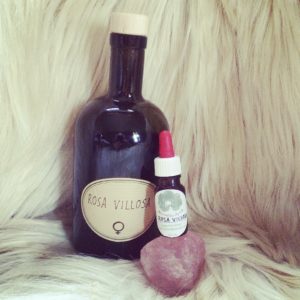
[:en]The secret of the heart
![]()
The medicine of the Rose is healing to the emotional heart as well as a remedy for the physical circulatory system. It is a cardio-tonic, cooling and astringent.
![]()
Rose is also a brain-tonic known to be a medhya in Ayurveda, that is, it enhances dhi dritti smriti. These are the three primary functions of the brain for the actions of registering, storing and recalling knowledge and information. When they are operating in a balanced and coordinated manner, the brain is in a stress-free state of bliss.
Rose is a support when processing strong feelings and good when making important decisions.
![]()
First and foremost, Rose is a healer for the heart. It evokes beauty, openness and gentleness. To walk in beauty. The rose opens the heart chakra and her teaching is to love ourselves.[:sv]Hjärtats hemlighet
![]()
Rosens medicin är att hon både helar det emotionella hjärtat och stärker det fysiska cardiovaskulära systemet. Hon är verkligen en hjärtestärkare på alla vis.
Rosen verkar kylande och sammandragande.
![]()
Rosen är också bra för sinnet. Innom ayurvedan är det känt att rosen förstärker de tre hjärnfunktionerna som registrerar, lagrar och minns kunskap och information. När dessa tre samarbetar är hjärnan i ett ostressat tillstånd av hänförelse!
Rosen ger stöd när vi bearbetar starka känslor och fattar viktiga beslut.
![]()
Framför allt helar rosen hjärtat. Hon framkallar skönhet, öppenhet och vänlighet. Rosen öppnar hjärtchakrat och hennes lära är att älska oss själva. Att vandra i skönhet.[:]
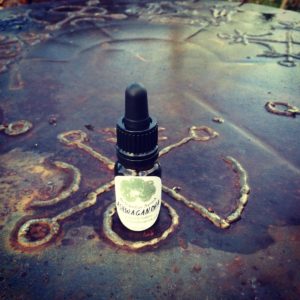
[:en]
“The best cure for insomnia is to get a lot of sleep.” – W.C. Fields
![]()
Ashwagandha strengthens the immune system, the male and female reproductive system and is especially helpful in case of a burned out nervous system. Ashwagandha is used to tone, support, and revitalize bodily functions. It is an adaptogene with a paradoxical dual capacity to energize and calm at the same time.
![]()
Stress can cause fatigue, often manifesting as “hyper” signs like agitation and difficulty sleeping. By providing a nourishing yet energizing effect, the nervous system is soothed and supported.
When the stress doesn’t impact the nervous system as strongly, the “hyper” signs will naturally resolve over time, allowing for a calming effect. This quality of Ashwagandha makes it rejuvenating.
![]()
Ashwagandha is incredible for the person who has burned the candle at both ends, or to come back after a period of illness. It is one of the most famous ayurvedic herbs. It helps a person to have stronger benefits from rest and sleep.[:sv]
“The best cure for insomnia is to get a lot of sleep.” – W.C. Fields
![]()
Ashwagandha stärker immunförsvaret, stärker både kvinnans och mannens reproduktiva system samt höjer libido. Ashwagandha används för att stärka, stödja och revitalisera kroppsliga funktioner och är en adaptogen med en paradoxal förmåga att både skänka energi och att lugna. Ashwagandha är särskilt bra att ta vid utbrändhet eller efter en längre sjukdomsperiod.
![]()
Stress skapar trötthet vilket ofta kan uttryckas i “hyper” tillstånd så som att bli uppskruvad och få svårigheter att varva ner. Genom att skänka näring och energi, ges nerverna läkning och stöd. När stressen inte längre påverkar nerverna lika mycket avtar “hyper” symtomen av sig själva , och vi lugnas ner. Detta är den föryngrande effekten ashwagandha har.
![]()
Ashwagandha är otroligt behjälplig för den som gått in i väggen eller bränts ut, och kan fungera som en hjälp att komma tillbaka efter en tids sjukdom. (Kombineras väldigt bra med mjölkig havre.)
Det är en av de mest kända ayurvediska örterna och förstärker vår förmåga att tillgodogöra oss vila och sömn.
[:]
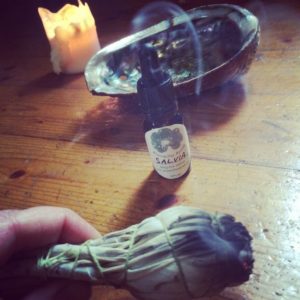
[:en]Sage is for the practicing mystic – I walk my talk
![]()
Sage is used for irritations and inflammations of the throat and respiratory system. Sage has an action on the liver, gallbladder and the digestive system and helps the liver to break down fat. Regulates sweating.
![]()
Purification of the self and purity in communication. Support in delivering our messages. Sage reconnects us to who we are and helps us to recognise wisdom in everything. How each reflection of life is a reflection of our own nature, as we hold the whole universe within our own being.
![]()
Sage helps with integration of the spiritual and the physical worlds together, dissolving the boundary between the mundane and the sacred, helping to bring knowledge into the heart where it can transform into wisdom. Sage is a wise plant teacher of many secrets.
[:sv]Salvia är för den praktiserande mystikern – I walk my talk
![]()
Salvia används vid inflammation och irritation i halsen och luftvägarna. Salvia verkar på levern, gallan och matsmältningen genom att hjälpa levern att bryta ner fett. Salvia hjälper till att reglera svettning.
![]()
Salvia främjar klarhet i kommunikationen. Den stödjer oss att leverera vårat budskap. Salvia hjälper oss att knyta an med vårt sanna jag och att upptäcka visdomen som finns i allt runt om kring oss och uppenbarar att alla reflektioner av livet är reflektioner av oss själva, ty vårat väsen innehåller hela universum.
![]()
Salvia stödjer oss att integrera den andliga och den fysiska verkligheten så den blir till en värld. Den upplöser gränsen mellan det vardagliga och det heliga och stödjer oss att förankra kunskapen i hjärtat där den kan transformeras till visdom. Salvia kan bli en inre lärare.[:]
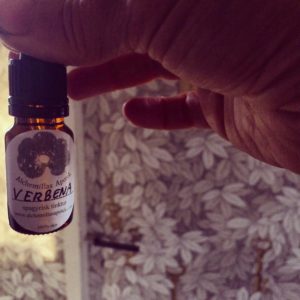
[:en]Sacred herb of the druids.
![]()
Bitter tonic – good for digestion, moving stuck liver energy, nervine – good for burnt-out nervous system, relaxant – especially for tension in the neck, shoulder, head region, very good for painful menses and PMS, also for hot flashes.
![]()
Vervain helps the entrepreneur to unwind and stop working at home. It is indicated for list makers, for people with mental excess as it moves the energy downwards and works as a remedy of embodiment. Vervain people tend to neglect themselves, they forget to eat, drink water, clean the house, exercise etc.
Instead they tunnel vision on their goal and loose sight of other important facets of their life which can fall wayside.
![]()
Indicated for driven visionaries that can burn out from over exhaustion yet be constantly striving. Vervain helps the soul to center and ground its tremendous enthusiasm. The body becomes a natural regulator and harmoniser for the abundant spiritual forces that pour out of such a person, a soul that is able to inspire, lead and heal others.
[:sv]Druidernas heliga ört.
![]()
Järnört är bittert och är bra för matsmältningen, levern, avslappnande för nerverna – särskilt vid utbrändhet, avslappnande för spänningar- särskilt i nacke, skuldror och huvud samt mycket bra vid smärtsam menstruation, PMS och värmevallningar.
![]()
Järnörten hjälper entreprenören att varva ner och sluta arbeta hemma efter arbetsdagen. Den är speciellt bra för folk som skriver listor och för de som har för mycket mental energi då det för energin neråt och gör att man är mer närvarande i sin kropp i stället för bara uppe i huvudet. Järnörts-personer har tendensen att negligera sig själva, glömmer att äta och dricka tillräckligt med vatten, städa sitt hem, träna etcetera. I stället drabbas de av tunnelseende med ett enda mål i sikte medan andra viktiga delar av livet faller i glömska.
![]()
Järnört är bra för drivna visionärer som kan bränna ut sig själva och utmattas av sin konstanta strävan. Järnört centrerar själen och jordar dessa människors enorma entusiasm. Kroppen börjar att balansera sig naturligt och det överflöd av energi som en sådan inspiratör sprider kan kanaliseras och användas för att leda och hela andra.[:]
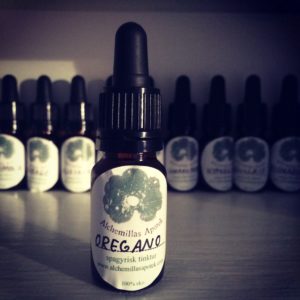
[:en]The Joyous Mountain. From Greek oreiganon, from oros “mountain” + ganos “brightness”
![]()
Oregano has extraordinarily powerful natural antibiotic qualities. The strong phenol antioxidants destroy pathogenic bacteria, viruses and yeasts.
Oregano is antiseptic, an aid for ear, nose and throat, respiratory infections, candida and any sort of bacterial or viral conditions.
It is a powerful aid when inflammation is around especially colds and flus with chills and shivering as well as respiratory tract infections with profuse mucus and chilliness. Very good at the beginning of measles to lessen the course of the disease.
Oregano also works for the digestion, abdominal swelling and belching.
![]()
It relaxes the mind, balances the emotions and banishes mental fatigue. Oregano is promoting clarity of thought.
![]()
Oregano opens the solar plexus and installs courage and the power to complete a mission. It is good for people who start projects but have trouble finishing them. When the mountain has been climbed, experience the joy of a new perspective.
[:sv]Lyckans Berg
Ordet härstammar från Grekiskan.
![]()
Oregano har utomordentligt kraftfulla naturliga anti-biotiska egenskaper.
Oregano är rik på antioxidanter som förgör patogena bakterier, virus och jästorganismer.
Oregano verkar anticeptiskt, ett hjälpmedel för öron, näsa, och hals / luftvägsinfektioner, candida, alla former av bakterie- eller virusangrepp.
Oregano är ett kraftfullt hjälpmedel vid inflammation särskilt förkylningar och influensor med frossa samt luftvägsinfektioner med rikligt med slem och man känner sig frusen.
Bra att ta vid insjuknandet av mässlingen, för att minska sjukdomsförloppet.
Oregano är även bra för matsmältningen, upplåst mage, rapningar.
![]()
Avslappnande för sinnet, balanserar känslorna och motverkar mental trötthet.
Oregano skänker klarhet i tanken.
![]()
Oregano öppnar solar plexus och ingjuter modet och kraften att slutföra uppdrag. Oregano är bra för de som påbörjar projekt men sedan inte riktigt orkar slutföra dem. När berget har bestigits kommer glädjen av att uppleva ett nytt perspektiv.[:]
